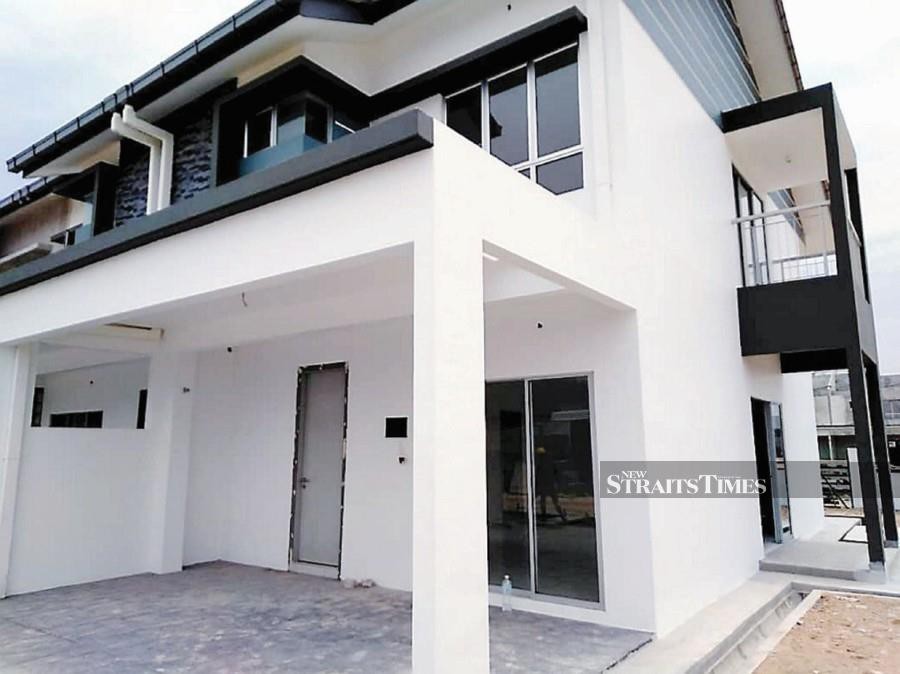THE Housing and Local Government Ministry announced that there are more than 30,000 unsold houses valued at RM19.75 billion.
This sluggish market is of concern to the government and the ministry is already involved in efforts to end this mismatch in demand and supply with the aim of keeping the sector healthy.
A measure intended to push demand is the Home Ownership Campaign (HOC) for high-end houses.
This measure is expected to be extended upon its closing date of Dec 31. Indeed, given this price range the only sensible move is what is already on offer: stamp duty exemption and a 10 per cent discount.
Another measure being considered, which should long have been standard practice, is for developers to submit feasibility studies when applying for planning permission.
In Johor Baru where the glut is high, the state government is looking to spike the tempo more immediately by renting out the unsold units as part of its rental plan for the younger generation.
It hopes to achieve this by working with real estate agents to identify suitable properties. This is an economically sound move to preserve the housing sector's share of the gross domestic product.
A more effective move would be for the government to subsidise house purchases among those who can afford to pay for them. But, of course, these houses must be made affordable to prospective buyers.
The government could purchase these houses at negotiated prices low enough to then sell it off as affordable homes. Or even rent the properties out.
In short, the government provides a cushion for developers and gives housebuyers a leg up.
A win-win arrangement that is good for the economy. After all, allowing these houses to go to waste will hit the banks, too.
And, it helps speed up the government's housing policies.
In the West, governments are busy putting together a framework to fulfil their role in the provision of social and affordable housing in the midst of the pandemic.
Thousands of homes and flats are planned and some have gotten off the ground, working together with social and cooperative sectors as well as the private sector.
For example, in Spain, the Barcelona Housing and Rehabilitation Forum has just been formed. This, the second of its kind, focuses on a new formula for collaboration between the public administration and the social, cooperative and private for-profit sectors.
But, in the current circumstance for Malaysia, the houses are already built and waiting to be put to use. If any planning is needed, it is the methodology of exploitation for a win-win outcome.
It is best to imbue into a negative situation a measure that would turn around the situation. One wouldn't want to see it all go to waste.
For example, in China, after a decade of non-occupation, buildings were razed to the ground. Why opt for waste when the situation can be a winner. And, unlike the West, Malaysia's homelessness predicament is still reasonably modest.
However, it is important to bear in mind the causes of homelessness — unemployment, no family support, poverty, mental illness and substance abuse. Before housing assistance can be delivered, these issues need to be addressed.
The primacy of employment cannot be denied. Within the scope of economic rehabilitation, the government has already put this objective front and centre. Jobs are being created especially to absorb those who have lost their jobs due to the pandemic.
Homelessness is not just difficult. It is dangerous too, as the case of the kidnapped and then murdered child near Kota Raya some months back proved. Therefore, to provide housing is not mere charity. It is a right of the individual to be housed.
No amount of hard luck leaves a person bereft of his or her human rights. Under such circumstances it is the government that must cancel the effects of bad luck and put things right for the citizen.
Yes, there is a housing glut. Thirty thousand dwellings looking to be usefully put to use. Of course, the high-end ones must find their own solution but those that can be priced down to affordable levels must be so handled.
While the going is good, capitalist developers will go to all lengths to maximise profits. But, opportune times are here for the those looking for affordable homes.
And, the current vulnerability of the developers might just be the moment when reason will prevail and the capitalist will capitulate to the best offer that will save their hides.
The author is former NST Leader writer



